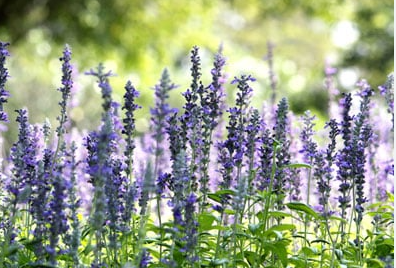Hyssop Plant Unveiled: Uses, Benefits, and Everything You Need to Know

Hyssop, a name that might sound unfamiliar to many, has been a staple in traditional medicine and culinary arts for centuries. Known by various common names and cherished for its multitude of uses, this plant has carved a niche for itself in various cultures around the world. In this article, we’ll delve deep into the world of hyssop, exploring its uses, benefits, and much more.
Also Read:- The Taro Plant: A Comprehensive Guide and Its Significance in India
What is Hyssop?
Hyssop, scientifically known as Hyssopus officinalis, is a herbaceous plant native to the Mediterranean region. Often recognized by its vibrant blue flowers and aromatic scent, hyssop is not just a pretty face in the garden. Its common names include herb hyssop, garden hyssop, and sacred hyssop, among others.
Hyssop Uses: From Culinary to Medicinal
- Culinary Uses: Hyssop leaves have a slightly bitter taste with a hint of mint. They are often used as flavoring agents in salads, soups, and meat dishes. The young leaves can be used fresh, while the older ones are typically dried and stored.
- Medicinal Uses: Hyssop has a rich history in traditional medicine. From treating respiratory conditions to aiding digestion, hyssop has been a go-to remedy for various ailments. Its antiseptic properties make it a popular choice for treating minor cuts and wounds.
- Tea: Hyssop tea, made from the dried leaves of the plant, is not only aromatic but also packed with health benefits. Regular consumption can help soothe sore throats, reduce coughs, and even alleviate symptoms of asthma.
- Essential Oils: The essential oil derived from hyssop is used in aromatherapy for its calming and soothing properties. It’s believed to promote relaxation and reduce anxiety.
The Many Benefits of Hyssop
- Digestive Health: Hyssop is known to stimulate the digestive system, aiding in the breakdown of food and preventing issues like bloating and gas.
- Respiratory Relief: As mentioned earlier, hyssop tea can be a boon for those suffering from respiratory issues. Its anti-inflammatory properties help in clearing mucus and relieving congestion.
- Skin Care: Hyssop essential oil, when diluted, can be applied to the skin to treat conditions like eczema and psoriasis. Its antiseptic properties also make it effective against acne.
- Mental Well-being: The calming effects of hyssop essential oil can help in reducing stress and promoting a sense of well-being.
Hyssop Plant and Seeds
The hyssop plant is a perennial, meaning it can live for more than two years. It prefers sunny locations and well-drained soil. Growing to a height of about 60 cm, it’s an excellent choice for borders in gardens.
Hyssop seeds can be sown directly into the ground or started indoors. They germinate quickly and require minimal care, making them perfect for novice gardeners.
Conclusion
Hyssop, with its myriad of uses and benefits, is truly a gem of a plant. Whether you’re sipping on some hyssop tea, using its essential oil for relaxation, or simply admiring its beauty in your garden, this plant is sure to impress. So, the next time you come across hyssop seeds or plants at a nursery, give them a try. You might just discover a new favorite!
Note: Always consult with a healthcare professional before using any herbal remedies or supplements.
Frequently Asked Questions (FAQs) about Hyssop
- What is hyssop?
- Hyssop is a herbaceous plant native to the Mediterranean region, known for its vibrant blue flowers and aromatic scent. It’s scientifically named Hyssopus officinalis.
- What are the common names for hyssop?
- Some of the common names for hyssop include herb hyssop, garden hyssop, and sacred hyssop.
- How is hyssop used in cooking?
- Hyssop leaves can be used as flavoring agents in various dishes, including salads, soups, and meats. The young leaves are typically used fresh, while the older ones can be dried and stored for later use.
- What are the medicinal uses of hyssop?
- Traditionally, hyssop has been used to treat respiratory conditions, aid digestion, and heal minor cuts and wounds due to its antiseptic properties.
- How is hyssop tea beneficial?
- Hyssop tea can help soothe sore throats, reduce coughs, and alleviate symptoms of asthma. It’s made from the dried leaves of the plant.
- Can I use hyssop essential oil directly on my skin?
- It’s recommended to dilute hyssop essential oil before applying it to the skin. It can be beneficial for conditions like eczema, psoriasis, and acne.
- How do I grow a hyssop plant?
- Hyssop plants prefer sunny locations and well-drained soil. They can be grown from seeds, which can be sown directly into the ground or started indoors.
- Is hyssop safe for everyone?
- While hyssop is generally considered safe for most people, it’s always a good idea to consult with a healthcare professional before using any herbal remedies or supplements, especially if you are pregnant, nursing, or taking medications.
- Can I use hyssop for stress relief?
- Yes, the essential oil derived from hyssop is used in aromatherapy for its calming and soothing properties, which can help reduce stress and promote relaxation.







